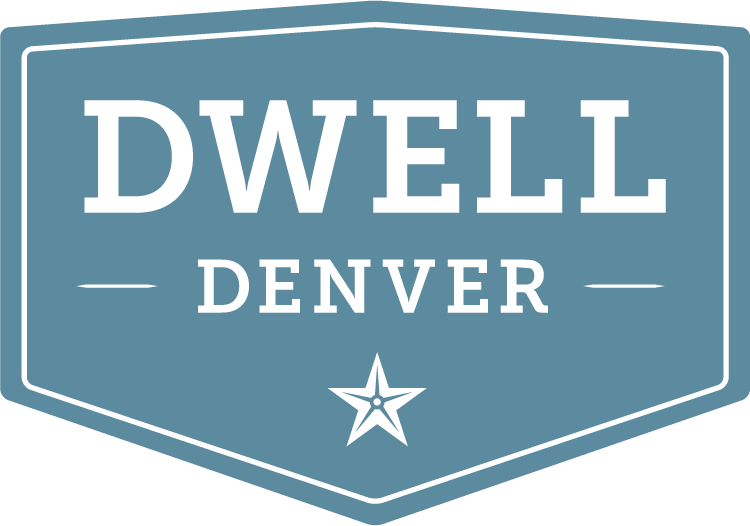The Ultimate First-Time Homebuyer’s Guide to Denver: Everything You Need to Know
Buying your first home is a big deal. You’re not just choosing a house, you’re picking where you’ll binge-watch Netflix, host your first Friendsgiving, and maybe even plant a tomato or two.
And in Denver? Well, you’ve got the added excitement of doing it in one of the most vibrant, fast-moving, and downright fun cities in the country. But with all that opportunity comes, let’s be honest, a lot of questions.
No stress, we’ve got your back. Whether you’re just starting to dream about homeownership or you’re knee-deep in mortgage calculators, this guide will walk you through everything you need to know.
Step 1: Start with a Budget (Not Just the “Zillow After Dark” Version)
Before you start falling in love with open floor plans and dreamy backyard patios, you need to know what you can actually afford. (Yes, we’re being the responsible friend here.)
Things to factor into your budget:
Your income and how steady it is
Current monthly expenses (Netflix counts)
Estimated monthly mortgage payment (including taxes & insurance)
Down payment (anywhere from 3%–20% of the home price)
Closing costs (more on that below)
Moving expenses (pizza for friends helping = priceless)
Pro tip: Aim to spend no more than 28–30% of your gross monthly income on housing. If you’re thinking, “Cool, how do I do that math?” that’s where a lender (and a good real estate agent) comes in.
Step 2: Get Pre-Approved (aka, Show Me the Money)
Pre-approval is like getting your golden ticket to the homebuying show. It tells sellers you’re legit, and it helps you shop with confidence.
What lenders look at:
Your credit score (aim for 620+, but higher is better)
Debt-to-income ratio (DTI)
Proof of income and employment
How much you’ve saved for a down payment
Denver homes can move fast, so having pre-approval in hand makes you way more attractive to sellers (and we all want to be appealing to sellers, right?).
Step 3: Choose the Right Mortgage (No, They're Not All the Same)
Mortgages aren’t one-size-fits-all. Luckily, there are options, and some are made just for first-timers.
Common types of home loans:
Conventional Loan – Most common, good for buyers with strong credit
FHA Loan – Low down payment (as low as 3.5%), great for first-time buyers
VA Loan – For veterans and active-duty military (with great perks!)
CHFA (Colorado Housing and Finance Authority) – Offers down payment assistance for qualifying buyers
Talk to your lender about what’s best for you. And yes, they’ll explain all the acronyms and mortgage-y words. Promise.
Step 4: Pick Your Denver Neighborhood (Spoiler: There’s No Wrong Choice)
Denver is a choose-your-own-adventure kind of city, with neighborhoods that match all kinds of lifestyles. Here are a few faves for first-time buyers:
Great Denver neighborhoods for first-timers:
Athmar Park – Affordable and close to downtown
Barnum – Historic homes, killer views, and actual P.T. Barnum history
Green Valley Ranch – Newer builds and suburban vibes
Sunnyside – Trendy but still (mostly) within reach
Park Hill (North) – Space, charm, and strong community roots
When choosing a neighborhood, think about commuting, schools (if needed), walkability, and what kind of vibe makes you feel at home. Oh, and try to visit at different times of day. A peaceful morning street can turn into a Friday night concert venue. Just sayin’.
Step 5: Make an Offer and Get Ready to Negotiate
Once you find the house, your agent will help you make an offer that’s competitive, but still within your comfort zone. (Bidding wars are a thing in Denver, but so are smart strategies.)
The offer includes:
Your price
Preferred closing date
Any contingencies (like inspection or financing)
Be ready for counter-offers, and remember, having a seasoned agent can make a world of difference here. Ahem, hi.
Step 6: Don’t Skip the Inspection (Even if the House Looks Instagram-Perfect)
We know the hardwood floors and farmhouse sink are dreamy, but let’s make sure the plumbing and electrical aren’t stuck in the 1950s.
A good home inspection will tell you:
What’s working
What’s breaking
What might break next week
If issues pop up (and they often do), you can negotiate repairs or even walk away. Consider this your “better safe than sorry” moment.
Step 7: Understand Your Closing Costs (So You're Not Shocked at the Finish Line)
You’ve made it this far, don’t let closing costs catch you off guard. These are the extra fees that come due when you, well, close.
Expect to pay for:
Loan origination fees
Appraisal and inspection fees
Title insurance
Prepaid property taxes and insurance
Escrow fees
Total? Usually around 2–5% of the home’s purchase price. Not small potatoes—but totally manageable with the right prep.
Step 8: Close the Deal and Grab the Keys!
You’ve signed more paperwork than you thought humanly possible, but you did it. YOU OWN A HOME.
Cue the happy dance, pop the champagne (or Spindrift), and get ready to decorate the heck out of that new place. No more landlord approvals. No more rent hikes. Just sweet, sweet homeownership.
Final Thoughts (And a Little Encouragement)
Buying your first home in Denver may feel like a lot, but with the right team, the right mindset, and maybe a little caffeine, you’ll get through it.
At Dwell Denver Real Estate, we specialize in helping first-time buyers navigate this journey with confidence, clarity, and zero judgment (even if you ask what “escrow” means more than once).
Whether you're just thinking about it or ready to start touring homes, we’re here to help you every step of the way.
Have questions? Need a pep talk? Want to start planning your move? Reach out—we’d love to be part of your story. Book a Discovery meeting today and let’s figure out if now is the right time for you. (No pressure, promise.)

